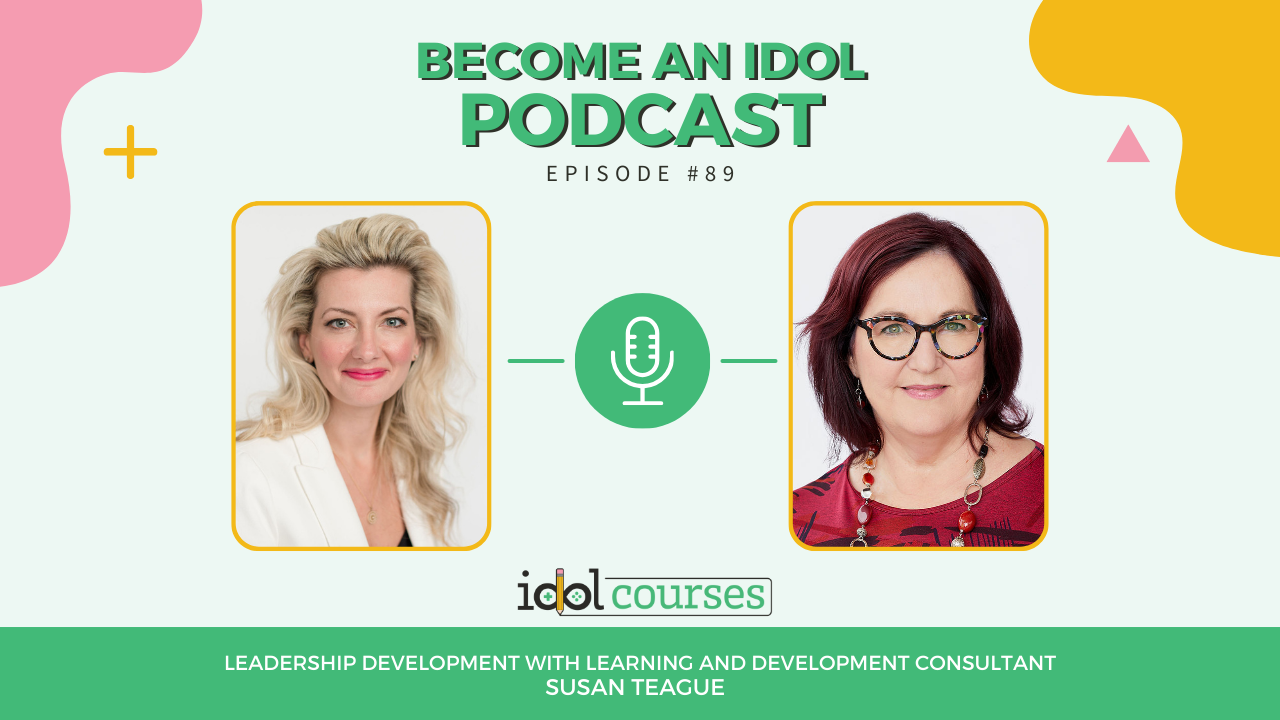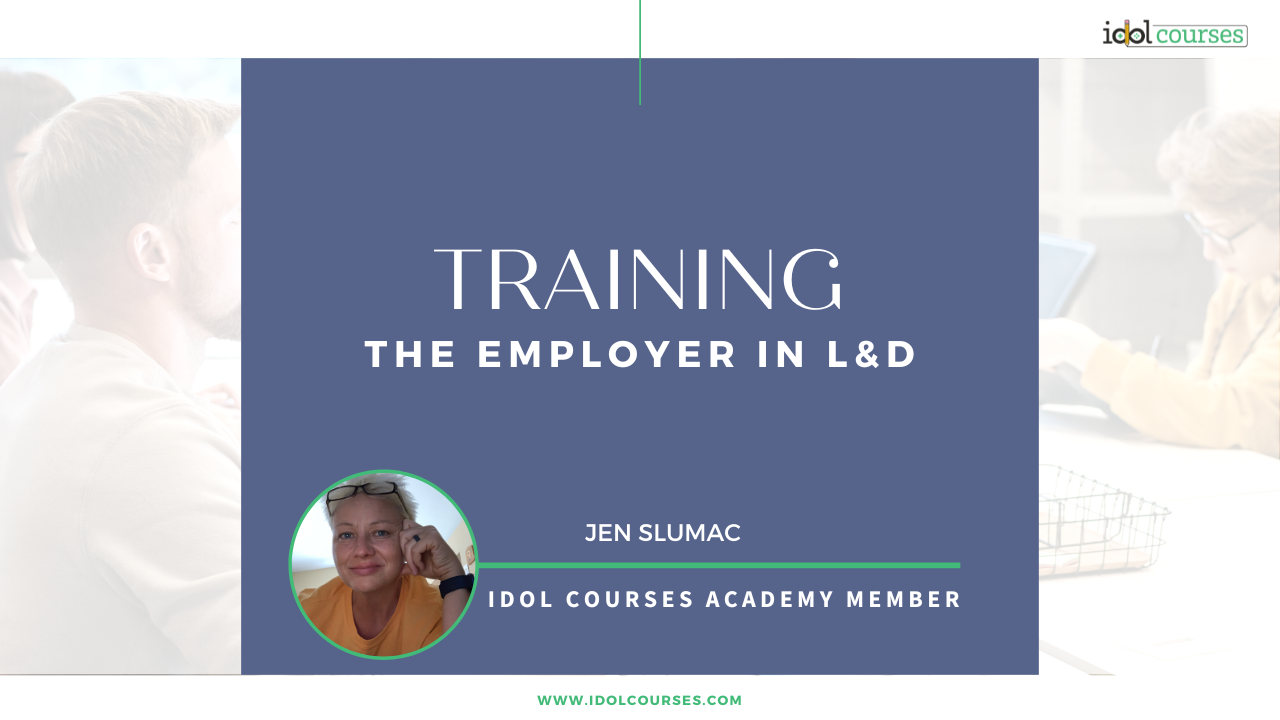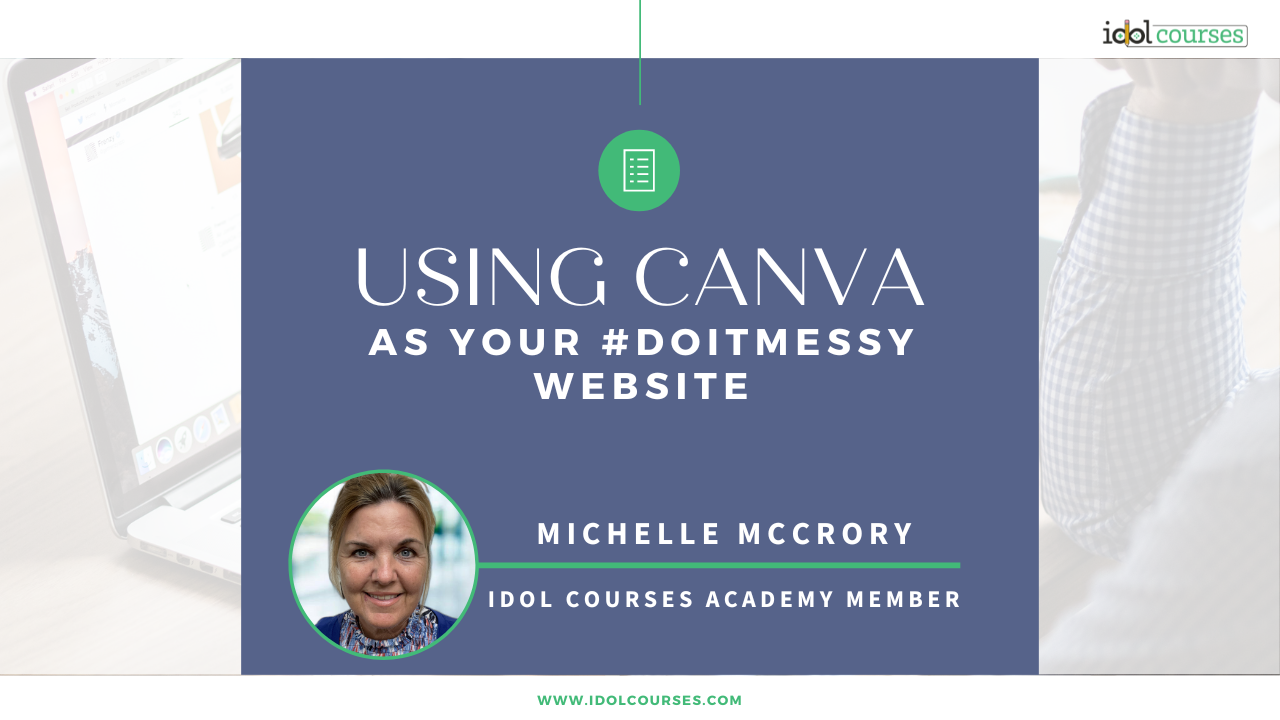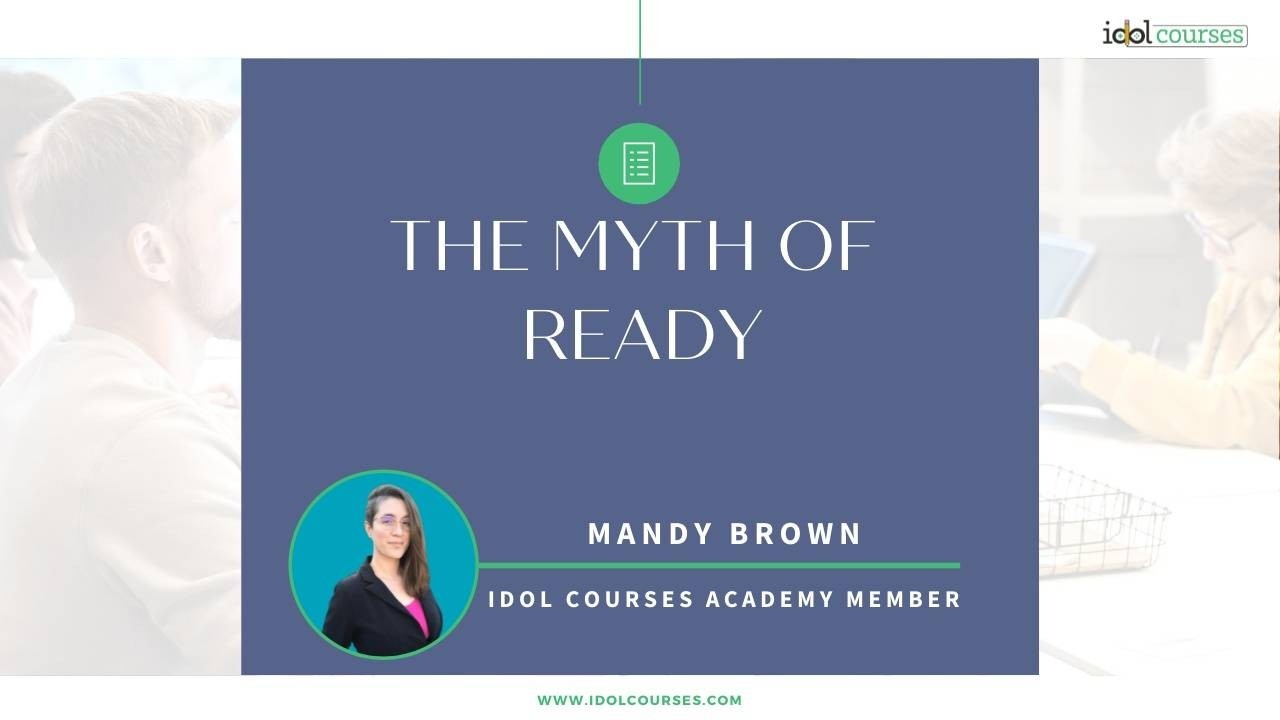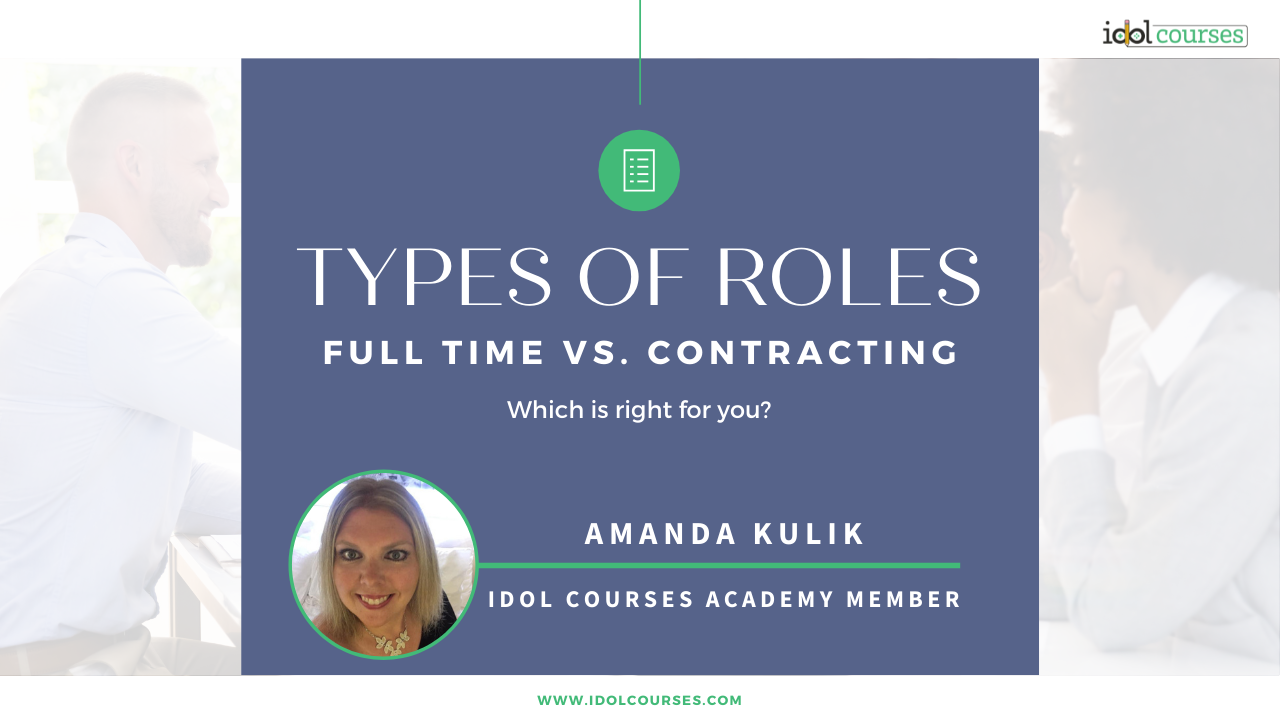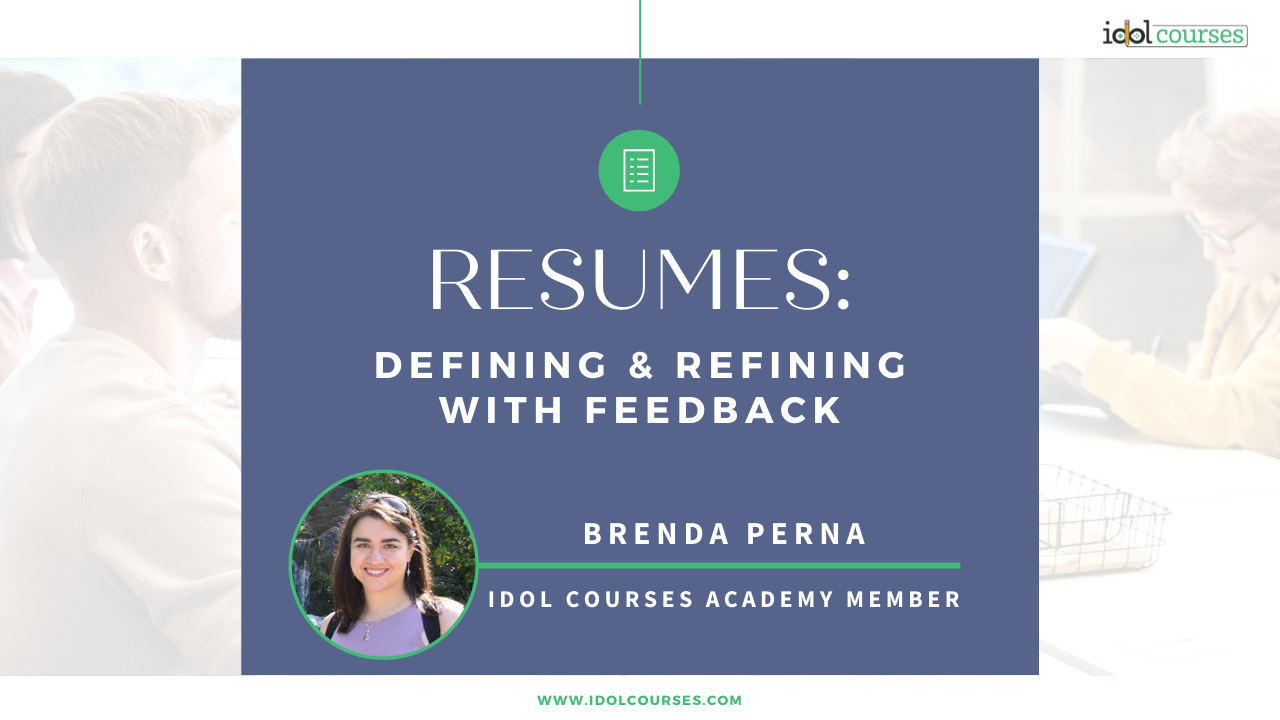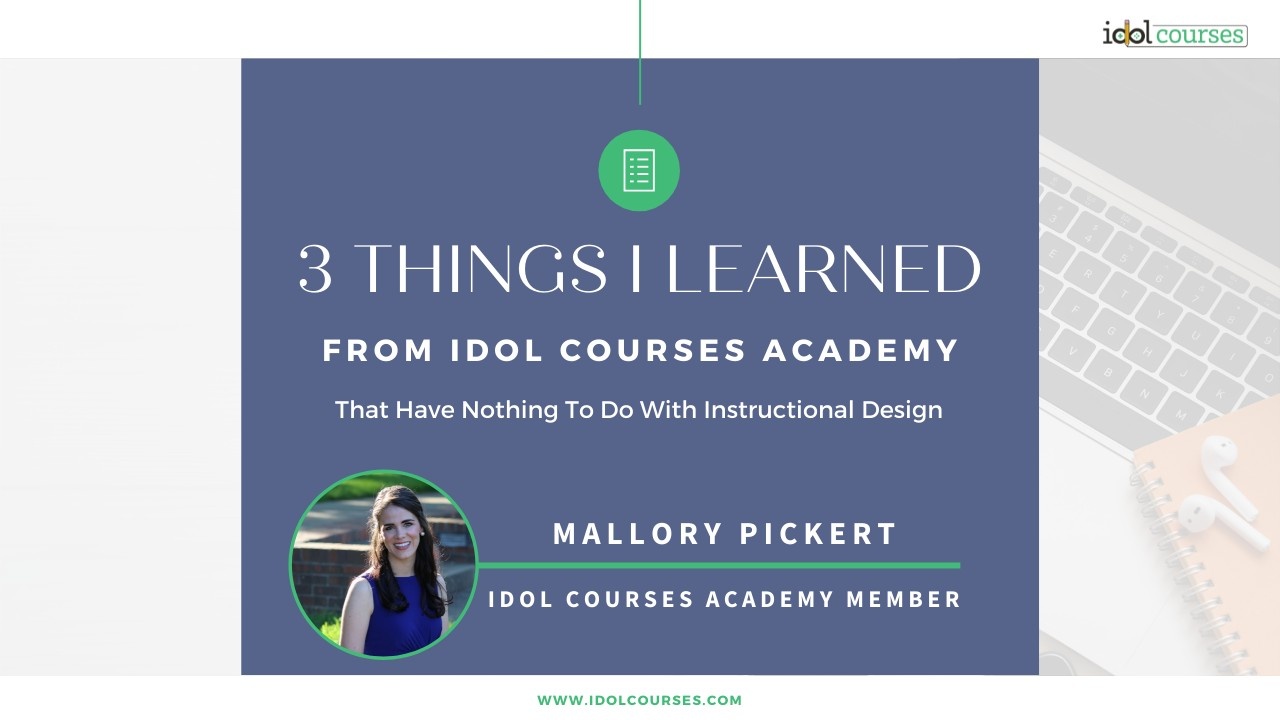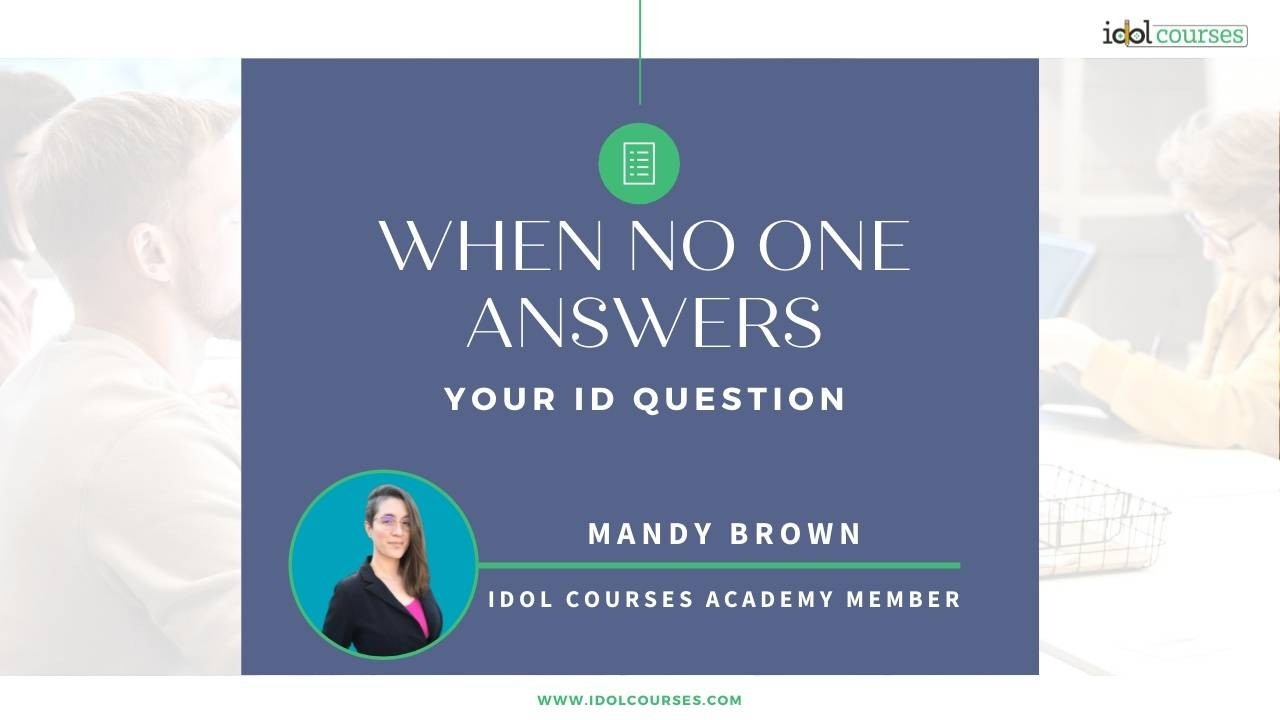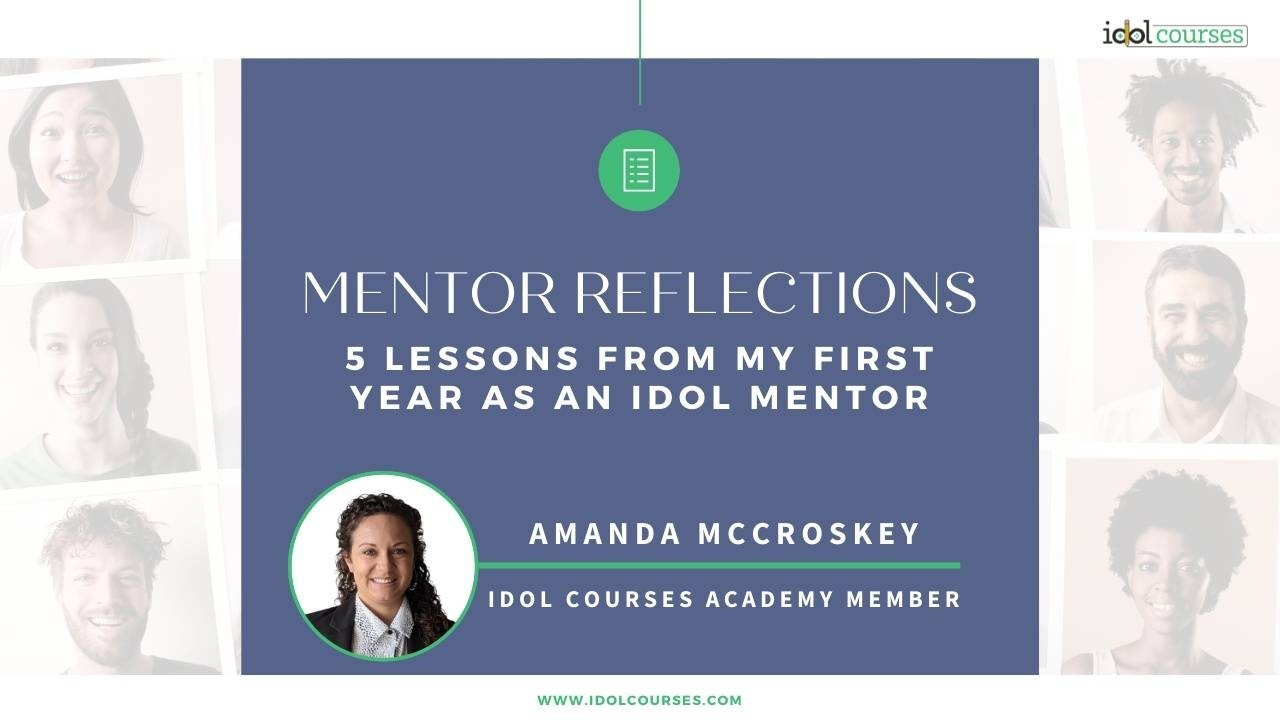
Elevate your instructional design expertise.
Stay ahead with industry news and discover valuable tips and tricks on the IDOL Blog.
Training: The Employer in L&D
Aug 15, 2022
Using Canva as Your #DoItMessy Website
Aug 03, 2022
The Myth of Ready
Jul 25, 2022
Full Time Employment vs. Contract Positions
Jun 10, 2022
This Playwright Question Informs my ID Practice
May 13, 2022
Resumes: Defining and Refining with Feedback
May 06, 2022
The Rubric of Salary Negotiations
Apr 14, 2022
When No One Answers Your ID Question
Mar 24, 2022
You Have Permission: To Make a Major Career Shift
Feb 25, 2022
Interested in joining the IDOL community?
Join our newsletter below, where we keep you updated on our upcoming cohorts, events and news within the instructional design industry.

